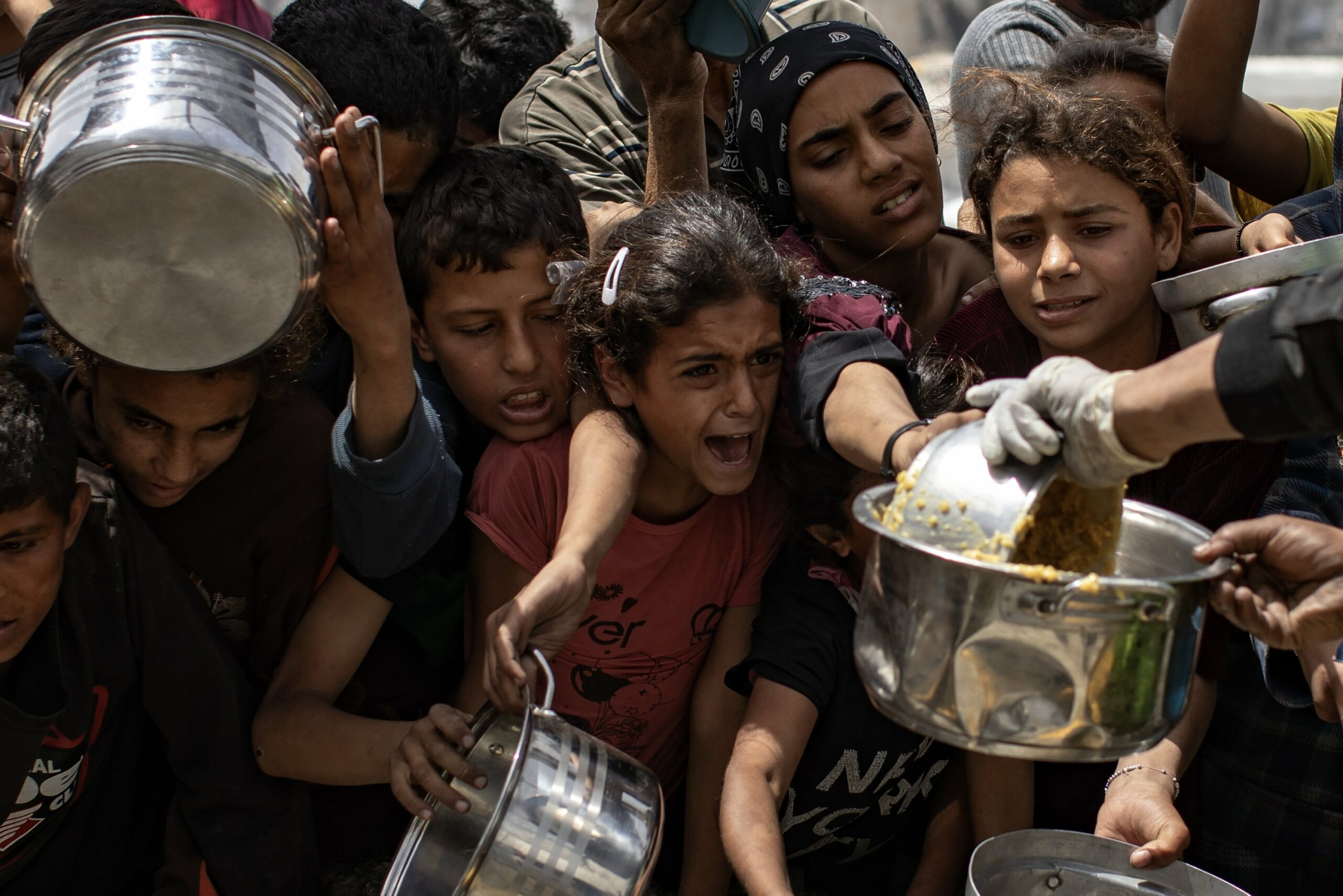The United Nations World Food Programme (WFP) has confirmed that all of its food supplies in the Gaza Strip have been depleted, as Israel’s blockade enters its eighth week, leaving over 400,000 people at imminent risk of starvation.
In a statement released on Friday, the WFP said its last remaining food stocks were delivered to community kitchens earlier this week, and those meals are expected to run out in the coming days.
“The situation inside Gaza has once again reached a breaking point,” the WFP warned. “People are out of options, and the limited progress made during the earlier ceasefire has now been lost.” The agency said it may have to suspend all food assistance operations if humanitarian access isn’t restored urgently.
During the temporary ceasefire earlier this year, the WFP managed to stockpile limited supplies, but those have now been exhausted. Prices for basic food items have surged by 1,400%, putting what little remains beyond the reach of most families. Aid kitchens, already overwhelmed, are only able to feed half the population and meet just a quarter of daily caloric needs.
Gaza’s Government Media Office has reported 52 hunger-related deaths, including 50 children, with over one million children experiencing severe food insecurity. Al Jazeera’s Hani Mahmoud, reporting from Gaza City, described visibly increasing hunger, saying families are already rationing food to survive.
READ MORE: Punjab to Start School Summer Holidays from June 1 Amid Rising Heat
The WFP, which had supported 25 bakeries, was forced to stop operations on 31 March due to the lack of flour and fuel. Household food parcels have also been fully distributed, and no aid—humanitarian or commercial—has entered Gaza since 2 March, when Israel sealed all border crossings. Over 116,000 metric tonnes of food are currently stockpiled outside Gaza, ready to be delivered once access is granted.
Israel maintains that the blockade is necessary to prevent Hamas from seizing aid supplies. However, international criticism is growing. Last week, Germany, France, and the UK condemned the blockade as “intolerable,” warning it risks triggering mass famine and disease outbreaks.
The UN Human Rights Office warned that the blockade, combined with ongoing bombardments and infrastructure destruction, may amount to collective punishment of Gaza’s 2.2 million residents. It also reported deliberate targeting of civilian infrastructure by Israeli forces, including water systems, ambulances, and rescue equipment.
Between 21 and 22 April, 36 relief vehicles used for water delivery and rubble clearance were destroyed by Israeli airstrikes across three governorates. Additionally, there were 229 strikes on homes and 91 on tent camps between mid-March and late April.
In the West Bank, violence is escalating, with ongoing settler attacks and a large-scale Israeli military campaign in Jenin and Tulkarm refugee camps. Rights groups have raised concerns about potential forcible transfers under international law.
In Gaza, efforts to reach a truce remain stalled. A Hamas delegation is expected in Cairo for talks mediated by Egypt, though the group insists on a permanent ceasefire and full Israeli withdrawal, while Israel continues to offer only temporary pauses linked to hostage exchanges.
Since 7 October 2023, Palestinian officials report over 51,439 deaths and 117,416 injuries in Gaza. Since the breakdown of the last ceasefire on 18 March, more than 1,900 people have been killed.
As famine looms, the WFP urged immediate action, stating food is ready for delivery if humanitarian corridors are opened. “WFP calls on all parties to prioritise civilian needs and allow immediate aid access in accordance with international humanitarian law,” the agency said.



